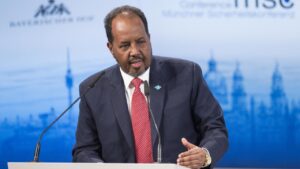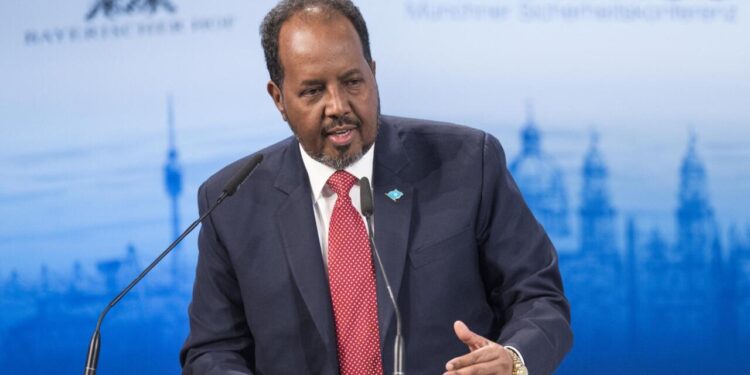
Somalia’s President Hassan Sheikh Mohamoud and four key opposition leaders have signed a historic agreement setting the framework for the country’s next elections. The deal, finalized on August 25, 2025, follows months of heated debate over Somalia’s electoral future.
The agreement builds on a new electoral law passed in October 2024, which introduced universal suffrage ahead of the 2026 elections. Under the framework, the President will continue to be elected by Parliament, while Members of Parliament will, for the first time, be chosen through a “one person, one vote” system.
Political parties that win at least 10% of parliamentary seats will gain official recognition — a step observers say could strengthen multi-party democracy. All sides also pledged to support the transition away from Somalia’s traditional clan-based power-sharing system.
President Mohamoud hailed the breakthrough, declaring, “The doors to state reconstruction are now open,” after two months of tense negotiations.
But the deal has also deepened divisions. Some opposition figures, including former President Sherif Sheikh Ahmed, argue that the country’s fragile security situation makes universal suffrage risky and unrealistic. Analysts warn that ongoing disputes could pose challenges to the reforms as the election draws closer.
The agreement is being viewed as both a milestone for Somalia’s democratic progress and a test of the country’s ability to deliver credible elections amid insecurity and political rivalry.


















